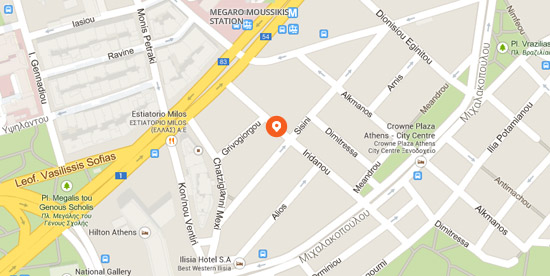Self-regulation for long-term weight control
Gaining weight is easy, and so is maintaining it. On the other hand losing weight can be very difficult and time consuming. Moreover once you have lost weight it does not necessarily mean that keeping it at the new level is not a hassle. Relapse is very common and can be very frustrating. In order to avoid relapse, scientists have tried to find techniques through which an individual can achieve long-term weight control. Those techniques or self-regulation factors are the scope of this article.
The techniques that we will present are rooted in psychology theories like motivation theories and behaviour change theories. Their identification has recently attracted the attention of researchers. Since the process of long-term regulation of weight is heavily influenced by psychology and behaviour, and therefore complicated, it is crucial to be able to distinguish those factors which can be effective.
In a recent systematic review, studies on behaviour and weight change were selected. Since long-term effects are important, studies which included long-term measurements were preferred. Long-term is defined as one year or more after the beginning of the programme. Overall, the aim of the review was to analyse the effect that self-regulation factors had on weight control, on physical activity and on dietary intake. The review identified the following: positive changes in body image, autonomous motivation to exercise, self-efficacy, self-regulation skills and increases in flexible restraint as the most consistent factors of weight change.
Body image is the total of opinions, thoughts, feelings we have about our body as well as the behaviours we adopt that may stem from our impression of our body. It has been observed that body image and long term outcomes like weight loss are positively related. The more positive is our body image the more effective we will be in losing weight. Low opinion of our body’s image may be expressed through excess preoccupation with how one looks or weighs. A positive body image benefits weight loss and maintenance.
Autonomous is the motivation that originates from within one’s self. It has been associated with positive health outcomes. That is because it is conducive to behaviours that satisfy our need of competence, autonomy and relatedness. The better we feel the more likely we are to adopt the same behaviour, and the more likely we are to reach the desired outcomes.
Self-efficacy is the confidence and belief we have in our ability to achieve set targets. It  can also be thought of as barriers efficacy, since overcoming obstacles in our efforts to reach our goals is central. The more determined and competent we feel about what we have to do the more likely it is to stay the course till the end.
can also be thought of as barriers efficacy, since overcoming obstacles in our efforts to reach our goals is central. The more determined and competent we feel about what we have to do the more likely it is to stay the course till the end.
Flexible restraint refers to eating means no particular eating behaviour is forbidden. We should note that this does not mean that the energy levels set should be ignored. There are two main benefits: one is we feel less pressure and two in time we comprehend how to stabilise energy intake.
Self-regulation skills include among other things measuring weight, energy intake and exercise on a consistent basis as well as setting targets and organising your course of action.
Reference
Texeira P.J., Carraca E.V., Marques M.M., et al. (2015) Successful behavior change in obesity interventions in adults: a systematic review of self-regulation mediators, BMC Medicine, 13:84.









